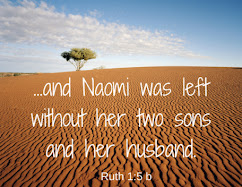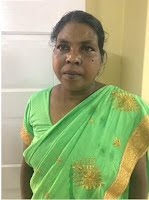I have written and spoken about Naomi whose story is recorded in the book of Ruth in the Old Testament, many times. There are so many lessons we can learn from her life. The stories of these women were given to us by God to instruct and help us when our lives face difficulties too. Today I want to again look at some of the occurrences in the life of Naomi and then introduce you to an incredible widow who lives in India and trace the journeys of each as they traveled the long, hard road to wholeness and productivity.
First, let me refresh your memory of Naomi. She, along with her husband and two sons, went to Moab from Bethlehem in Judah because Judah was experiencing a severe famine and the economic picture looked brighter in the land of Moab. Things were fine for a while; then Naomi’s husband died and a few years later so did both of her sons. Naomi was cast into an abyss of great grief and despair. She was now a widow with no means of support in a foreign country. She heard that things were better in the land of Judah and she made the decision to make the seventy-mile trip back through some very rough and dangerous terrain. Only one of her widowed daughters-in-law made the trip with her. They doubtless endured hot dusty days, cold nights, and would have been easy prey for robbers who hid along the roadways, but God protected them and they arrived safely. Yet circumstances didn’t immediately improve for her. Widows without benefit of an adult son automatically became a member of the lowest rung of society in those days. She was a broken, poverty-stricken, bitter old woman with no hope in sight. What was she to do?
Before I finish Naomi’s story, let me introduce you to a woman by the name of Vimala from the nation of India. Vimala lived the life of a wife and mother until, at the age of 47, she became a widow. She was thrown out of her home by her in-laws who blamed her for their son’s death. Her daughter reluctantly agreed to give her shelter, but this didn’t include food or the necessary medications she needed for her diabetes. In exchange, Vimala had to help support her disabled daughter as well as her two grandchildren. It was at this juncture in her widowhood that she found herself in much the same situation as Naomi. She was uneducated and had no marketable work skills. What was she to do? In her lonely, terrified state of mind, she contemplated suicide as her only way out and these thoughts haunted her day in, day out.
Soon Naomi’s bitterness was replaced with hope, and God began to orchestrate changes in her life, first through her daughter-in-law, Ruth, and then through Boaz, a close relative of her deceased husband. After a series of God-orchestrated events, Ruth and Boaz married and economic security was restored to Naomi. Ultimately, joy and fullness reigned in her heart again through the birth of her grandson, Obed, who became an ancestor to Jesus our Messiah.
Vimala, too, was consumed with despair and saw suicide as her only way out. But, God had other plans. God has placed in India a ministry called the Kerusomen Gospel Ministries who, among other things, helps the widows with kindness and love. Anju, who was the director of
the women's ministry, was filled with compassion for Vimala who was an outcast for no other reason than being a widow. Sadly, that is the fate of thousands of India’s widows. They are shunned by a society steeped in superstition that believes they are bad luck. Vimala’s only way to survive would be to beg or turn to prostitution. God used Kerusomen’s The Well partners to replace thoughts of suicide with hope for her. They now give Vimala a monthly stipend for food and furnish her medical supplies. This guarantees that her daughter will not abandon her. Women from The Well visit her and this brings comfort and joy to her.
Here we have the story of two widows, separated by centuries of time, but united through the compassion of our loving heavenly Father. You, too, are somewhere on your own journey from the grief and despair of widowhood to wholeness and productivity.
There are no coincidences with God. With Him as your heavenly Father, you can rely on His promise in Jeremiah 29:11 that says, “For I know the plans I have for you,” declares the Lord, “plans to prosper you and not to harm you, plans to give you hope and a future.” Commit your life into His care and trust Him to bring you safely through the dark times you may be experiencing.
I don't own any rights to this video or song. It's for entertainment and worship video or songs only.








